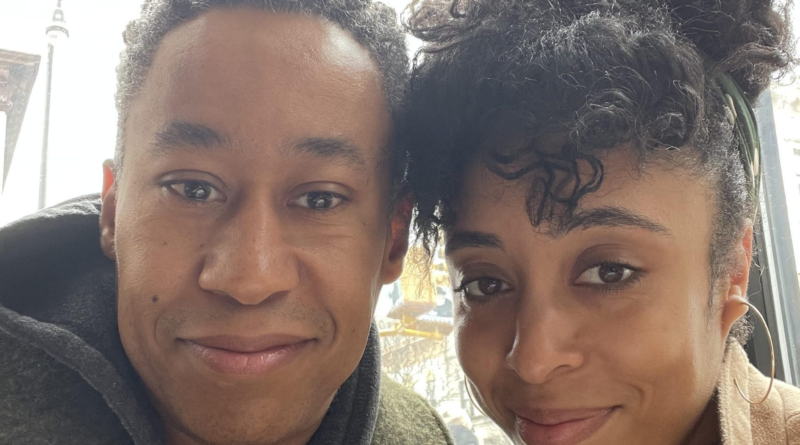We met during the idyllic summer of 2021. Here’s how we’re staying radically hopeful in the face of the anti-DEI backlash
In the summer of 2021, amidst a wave of activist movements and social justice uprisings, we found a serendipitous connection through a matchmaker. It was a time of possibility and tension—the perfect backdrop for the launch of the Black Feminist Fund, Tynesha and her co-founder’s decade-long dream to support and fund organizations advocating for change. At the time, we didn’t realize how fortuitous our relationship would turn out to be.
The in-between times
Looking back, we think of that summer as the “in-between times.” After the murder of George Floyd, Breonna Taylor, and sadly too many others and the subsequent racial justice uprisings in 2020, we watched organizations, companies, and leaders as they started to do what so many had pushed for: challenging systemic injustice and creating programs that begin their journey toward becoming more diverse, equitable and inclusive. Hard-fought-for progress seemed inevitable.
In hindsight, that’s exactly when things started to crack. A few years later, the Supreme Court overturned affirmative action—and we knew that challenging race consciousness in academic settings was just the beginning.
Social scientists and activists will tell you when progress moves forward, there’s always a high (momentum) followed by a low (pushback) as people, afraid of losing their grip on what’s familiar, dig in and resist change. Fast forward to 2024, and this backlash has only intensified, but we don’t think of it as a sign of failure. On the contrary, it’s proof of progress. Backlash is just a receipt that you’re doing something right.
Living in a constant state of duality
Today, we find ourselves navigating a complex emotional landscape—living in a constant duality of hope and frustration. On one hand, the backlash is disheartening because it’s made our work more difficult. We’re talking to more attorneys than ever before, trying to defend the progress we’ve made and figure out how to continue advancing racial justice in the future.
Aaron works at Zest AI, which uses patented artificial intelligence to accurately assess the creditworthiness of Americans, increasing loan approvals for Latino, Black, and AAPI applicants. It’s important equity-driven work especially considering Black and Latinx families represent 64% of the country’s unbanked and 47% of its underbanked households.
Tynesha, like leaders of other racial justice funds, is now bracing for the impact of the recent Fearless Fund decision, which we anticipated after the repeal of affirmative action. In that case, the Supreme Court applied the Civil Rights Act of 1964—particularly Title VI, which prohibits discrimination on the basis of race, color, or national origin in programs receiving federal financial assistance—to argue that race-conscious admissions practices, even when meant to increase diversity, were exclusionary and thus unlawful.
This reinterpretation of the Civil Rights Act, originally enacted to protect communities of color, has placed racial and gender justice-focused organizations like ours in a compromised position. Ironically, in our ongoing fight for justice, we now face the challenge of proving that our initiatives, focused on advancing equity for Black women and other underrepresented communities, are not discriminatory.
Despite the risks, we are holding firm. The activists and movement leaders we support are also facing intensifying threats. They need us now more than ever to stand beside them and resist efforts to undermine progress toward racial and gender equity.
Despite these setbacks, we’re hopeful. There’s hope in the growing number of people who refuse to accept a world rooted in inequality. And while the opposition may seem louder than ever, they’re often just a small, radicalized group trying to preserve a system that benefits them.
With that said, hope requires discipline. Being radically hopeful means actively choosing not to be governed by fear. In many ways, our lives have been a product of hope: We were raised by Black working-class and immigrant families with limited resources. While society reads our stories as deficits, we see our families, childhoods, and communities as sources of strength and resilience—qualities that make us even more qualified to do our jobs. But telling a different story requires courage and consistency.
For Black people, hope isn’t just an optimistic outlook—it’s a survival mechanism. We have built this muscle to endure these cycles of resistance throughout our lives. This backlash is just a new bag that we fortunately know how to carry.
Leaning on each other
To be clear, not every moment is hopeful. It’s deeply frustrating to continue having conversations that we thought we were done having. That’s the beauty of our relationship. We’re aligned in our hope, despite coming at the problem from radically different places. While Aaron works with technology to help people find financial security, Tynesha is focused on redistributing wealth to advance racial and gender equity. These differences make our conversations so much more necessary because we’re educating as much as we’re supporting each other.
Together, we’ve realized that even in moments of frustration, when it feels like we’re rehashing old arguments and moving backward, these conversations are critical. The backlash is leaving so many people in our community feeling isolated and cynical about whether we will ever build a world that is affirming for us all.
In moments when fear tries to overwhelm hope, we have each other to lean on. In the face of growing opposition to progress, we know the only way to survive and keep hope alive is through community. That’s how we’ll make it through this moment—and how, despite the resistance, our hope for a more just world continues to grow stronger.
More must-read commentary published by Fortune:
The opinions expressed in Fortune.com commentary pieces are solely the views of their authors and do not necessarily reflect the opinions and beliefs of Fortune.




